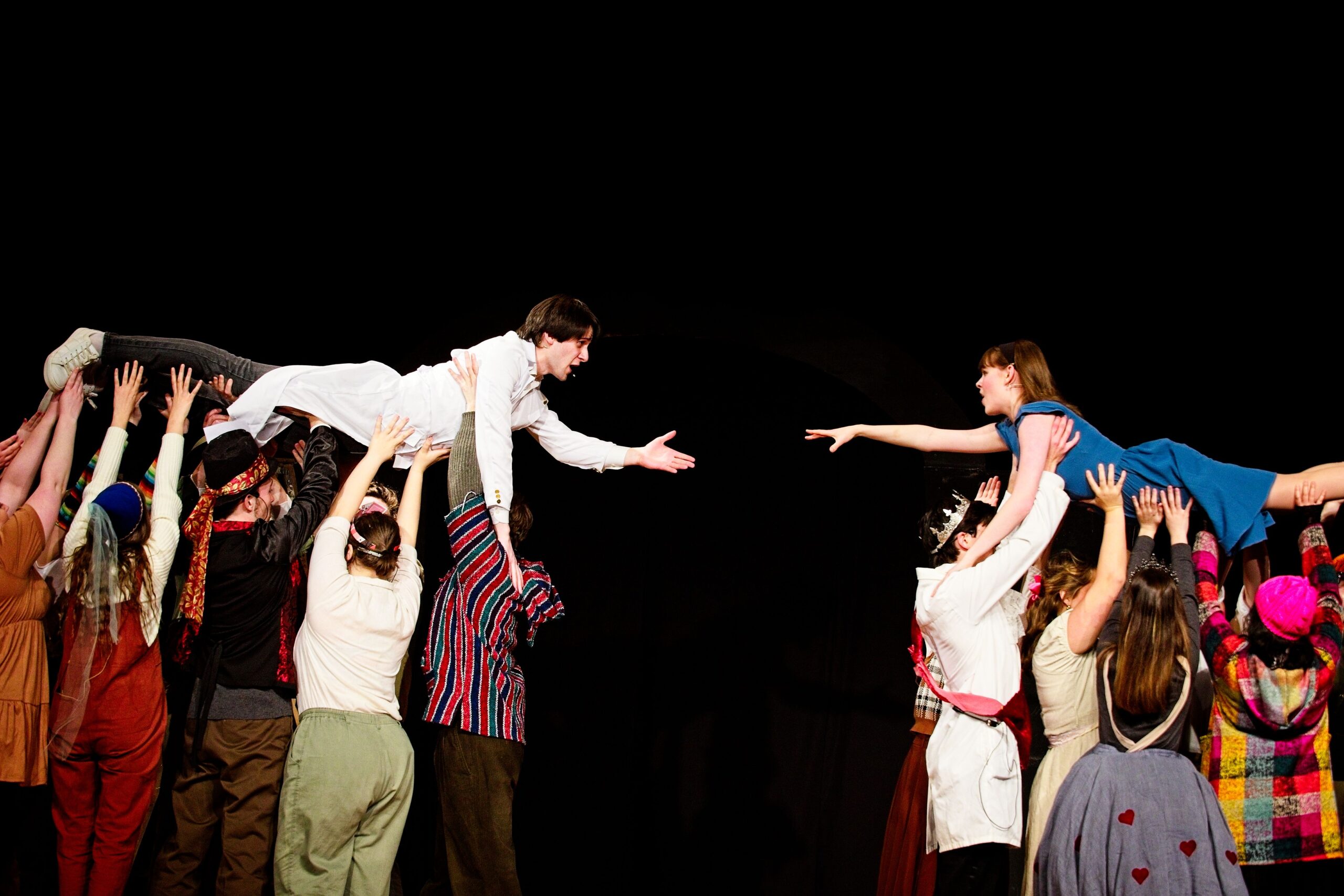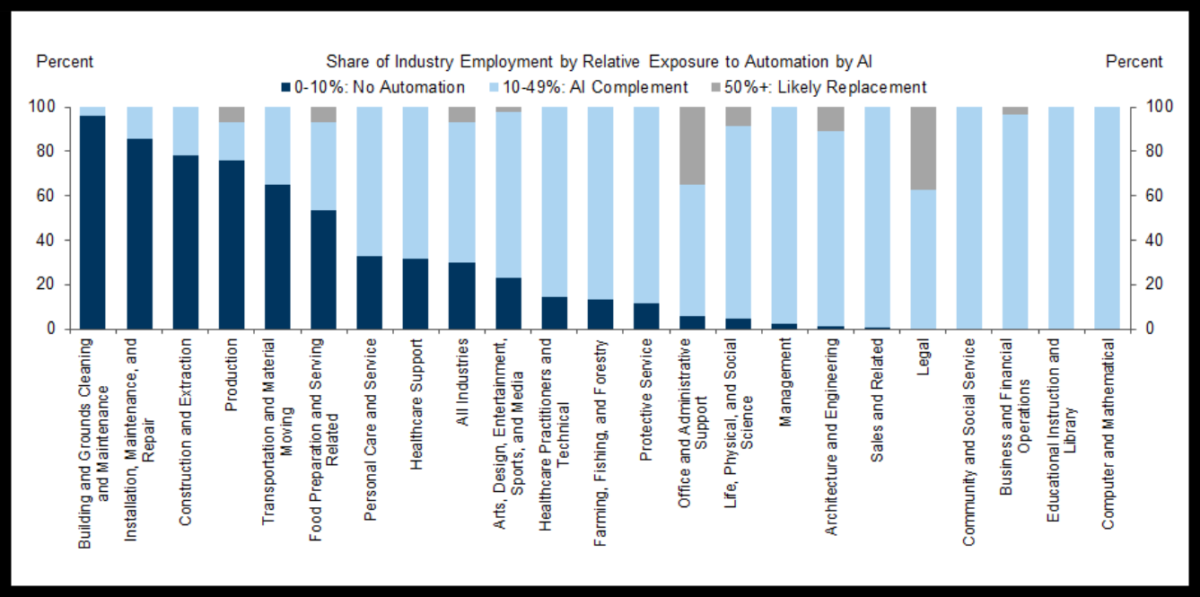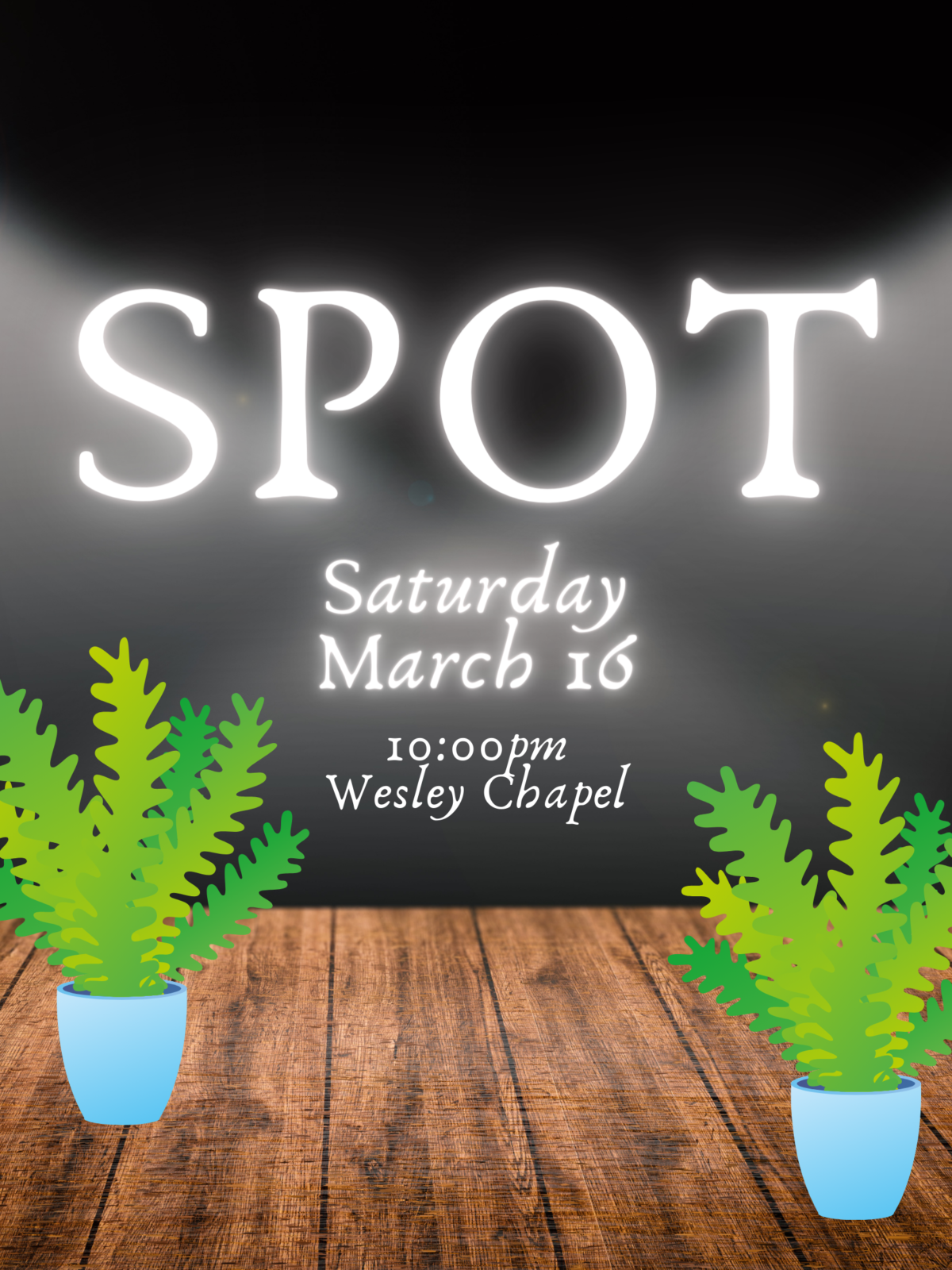By Jiana Martin ('26)
On Friday, March 22 at 7:30 p.m. the Lyric Theatre will hold its second of three performances of “Alice by Heart” in the Tysinger Auditorium of the Houghton Academy. The first performance was on March 21 and the final performance will be on Saturday, March 23 at 7:30 p.m.
“Alice by Heart” is a pop rock and folk musical which opened Off-Broadway in 2019.
“It’s a very new production,” Professor Amanda Cox, the director of Houghton’s Lyric Theatre, explained. “It’s very unusual and a little experimental.”
Professor Cox enjoys the newness of the musical as it has not been re-done multiple times and has allowed her to add a Christian perspective to the ending, pointing to hope and redemption.
The musical follows Alice Spencer during the Blitz (a German bombing campaign against the the United Kingdom in WWII) in 1941. She is forced to shelter in an underground tube station with a group of young people, including her childhood friend Alfred who is fatally ill with tuberculosis. Alice and Alfred share a love for the book “Alice in Wonderland,” which Alice begins reciting as a way to cope and process the traumatic events happening around her. She imagines the people around her as the different characters from the story, representing the ways she deals with her grief. The Caterpillar represents her avoidance of grief, the Mad Hatter is her anger about Alfred dying and the Jabberwocky is her fear of losing Alfred.
“We’re inside Alice’s head and experiencing her imagination as she’s working through the stages of grief,” Professor Cox described.
Senior Lydia Rech plays the feisty, imaginative and hopeful Alice Spencer.
“It has been such a privilege to bring this bold and determined girl to life and process, alongside her, so many different emotions,” Rech commented.
Although her life has been quite different from Alice’s, Rech has been able to use her own experiences to help her convey the emotions she wishes to get across.
“I often think about the fact that I am a senior – that I am ‘growing up’ and preparing to say goodbye to so many wonderful people here at Houghton. Remembering that I am not alone in this journey, like Alice comes to discover in the show, has been really special,” Rech reflected.
Rech has enjoyed slipping into Alice’s head and the challenges it brings as well as getting to know the Wonderland characters. To help her prepare for her role, she read the original “Alice in Wonderland” book for the first time. It helped her understand the context of the lines her character quotes from the book and why the book means so much to Alice.
Several cast members for this musical were also in Our Town, the Lyric Theater’s Fall 2023 production, so Rech has also enjoyed the opportunity to perform with them again.
“I’ve enjoyed getting to pick up right where we left off, in a sense, and get to practice sharing some of those deep emotions that we explored in the fall, only, now, in a musical setting,” Rech said.
Senior Jonathan Hutmire, who plays Alfred, is one of the people Rech has the privilege to perform with again. In Alice’s imagination, Alfred is the White Rabbit who is always in a rush saying he does not have time and needs to go.
For Hutmire, “the best part of seeing this show come to life is seeing each person really starting to add their own personal touches to each character.”
Because the musical is fairly new, Hutmire was not sure how he felt about it. However, he came to like it as Professor Cox brought her different vision to the story.
“She has given new levels of depth, meaning, and beauty to this show and has created something absolutely extraordinary,” Hutmire said.
As seniors, Rech and Hutmire look back at their time in the Lyric Theater program with fond memories and admiration.
“One of the greatest joys I have taken from the experience is just getting to bond with each different cast,” Rech said. “Here at Houghton, we have each other to lean on and figure it out together.”
Rech has learned the importance of finding her identity in Christ, not in her abilities or performance, and reminding her fellow actors and actresses of the same thing.
“While it’s only my fourth production with Lyric Theater, it never ceases to amaze me how all these intricate details and beautiful moments can come together to create something even better yet,” Hutmire reflected.
Looking back at her time directing “Alice by Heart,” Professor Cox admires the student’s dedication to their characters and performances.
“They do such beautiful work and they’re so willing to throw themselves into creating these beautiful characters,” Professor Cox expressed. “[The show] is stretching the cast members to do things they haven’t done before. They are just fantastic and I’m really proud of it.”
Audiences can expect something that is unusual, fascinating, fun, thought provoking and beautiful. The story goes deep, so audiences should be prepared to cry, but also laugh.
Rech concluded, “Because of Professor Cox, we perform stories that are more than just a fun show, but a show with incredible depth behind them. Which is what Alice by Heart will be!” ★




